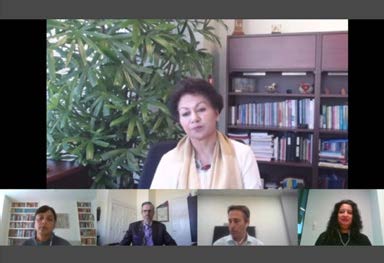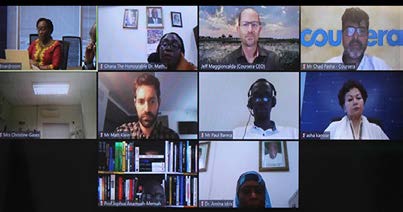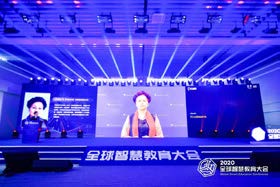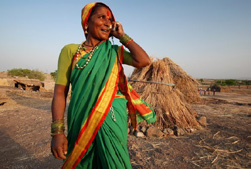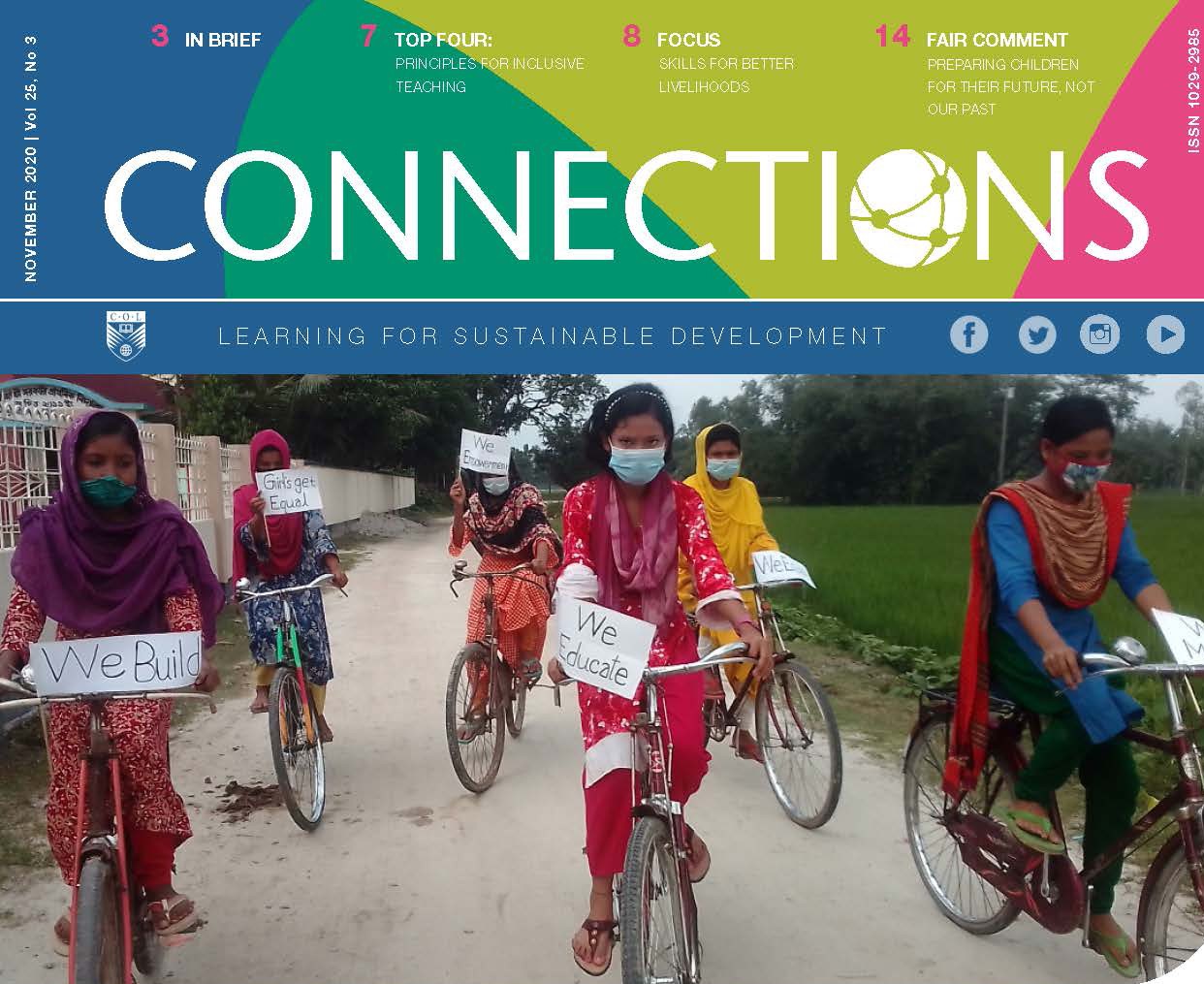
Download the digital version (PDF) from OAsis
Sign up to receive email updates from COL
COVER STORY
Building back better
“COL recognised the need for innovative approaches that combine the power of technology with inclusion.”
It has now been almost a year of unprecedented disruptions to lives and livelihoods caused by COVID-19, and those already most vulnerable – children from poor families, especially girls, and persons with disabilities – have been the ones to suffer the most.
As an intergovernmental organisation committed to reaching “the last person in the queue” with quality education and lifelong learning, COL recognised the need for innovative approaches that combine the power of technology with inclusion. COL was quick to provide targeted responses aimed at narrowing the divide between the “haves” and “have-nots.”
In partnership with the Coursera Workforce Recovery Initiative, COL has offered skilling and reskilling opportunities for employability to more than 115,000 Commonwealth citizens. In Guyana, these online course enrolments involved 10% of the country’s population in the 15-35 age group, and the credentials earned will be recognised for employment
purposes.
COL’s course on Using Open Educational Resources for Online Learning: An Introduction has contributed to learning continuity in the Pacific, Caribbean and beyond – reaching over 11,500 educators with its contemporary learning design and emphasis on peer engagement.
In India, COL supported the training of 5,000 women in digital skills for entrepreneurship, leveraging the potential of basic phones to ensure that they could find new ways to sustain their businesses.
Realising that COVID-19 has exacerbated the issue of violence, COL has worked with The Solomon Islands National Council of Women to develop a mobile app with information on various services related to gender, education, health and violence.
COL is also supporting persons with disabilities by developing resources, training teachers and partnering with specialist organisations, such as the Global Rainbow Foundation in Mauritius.
Over the past year, it has become increasingly clear that “business as usual” no longer works, and that technologies suitable for different contexts will have to become part of “the new normal.” With its mandate to promote distance learning, COL is best placed to help Member States use the opportunities offered by distance education to build back better.
Image caption: COL’s partner in Bangladesh, CMES, marked the International Day of the Girl 2020.
REGIONAL NEWS
PAN-COMMONWEALTH / GLOBAL
COL-Coursera regional convocations
Over 2,300 learners from 17 African nations who had successfully completed online courses under the COL-Coursera Workforce Recovery Initiative were recognised at a virtual convocation on 18 August 2020. The event celebrated graduates’ resilience and commitment to learning in the face of COVID-19. Collectively, they had invested over 100,000 hours of learning, gaining new skills to be relevant in the changing job market. Along with the graduates, participants included COL’s President and CEO Professor Asha Kanwar, Coursera CEO Jeff Maggioncalda and education ministers from Botswana, Ghana and Namibia.
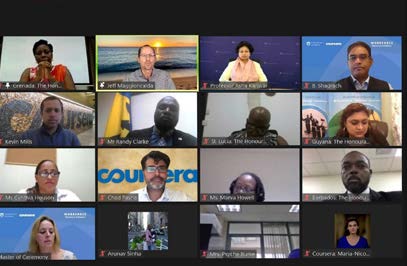 The achievements of 3,000 Caribbean learners were celebrated on 22 September, with participation by education ministers from Barbados, Guyana, Grenada and Saint Lucia. Graduates, who had collectively accumulated over 150,000 hours of learning, were commended for their passion for personal development and business skills and for becoming an inspiration to other young people who had lost their livelihoods in the pandemic.
The achievements of 3,000 Caribbean learners were celebrated on 22 September, with participation by education ministers from Barbados, Guyana, Grenada and Saint Lucia. Graduates, who had collectively accumulated over 150,000 hours of learning, were commended for their passion for personal development and business skills and for becoming an inspiration to other young people who had lost their livelihoods in the pandemic.
With support from various government agencies, COL and Coursera have effectively responded to the individual needs of these learners.
Rethinking smart education
COL is a partner in a new project led by the UNESCO Institute for Information Technologies in Education, which aims to identify key trends in smart education and explore solutions that use ICT, so as to ensure inclusive and equitable quality education and lifelong learning opportunities for all.
UNESCO Mobile Learning Week
COL hosted a virtual workshop in partnership with Mann Deshi Foundation and Vidiyal, India as well as the Indian Institute of Technology Kanpur as part of UNESCO’s Mobile Learning Week. The event featured COL’s innovations in linking rural women to quality learning via the use of basic mobile phones.
Skills for a resilient youth
COL partnered with UNESCO’s International Centre for Technical and Vocational Education and Training to organise the Virtual Conference on Skills for a Resilient Youth. The conference analysed ways to build TVET skills for “the new normal” by developing emerging accessible simulation materials as possible answers to challenges.
C-DELTA shortlisted
COL’s Commonwealth Digital Education Leadership Training in Action (C-DELTA) programme was nominated as a finalist for the Falling Walls 2020 award in the category of Digital Education. Presented annually, the awards recognise select breakthroughs of the year in a range of topics.
Impact of MOOCs
 Good agri-practices MOOC in The Bahamas
Good agri-practices MOOC in The Bahamas
The Bahamas Ministry of Agriculture and Marine Resources and The Bahamas Agricultural Health and Food Safety Authority delivered a MOOC on various aspects of agricultural practices contributing to economic, social and environmental sustainability. The seven-week MOOC attracted 673 learners from 35 countries, with 325 participants earning certificates of completion. This was the first MOOC offered in partnership with COL, allowing the ministry to reach learners throughout the archipelago’s length and breadth.
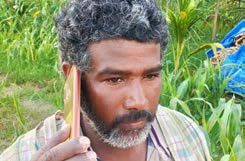 Over 2,000 Tamil Nadu farmers acquire pest management skills
Over 2,000 Tamil Nadu farmers acquire pest management skills
Farmers from two districts in the Indian state of Tamil Nadu learned various aspects of integrated pest management through a mobiMOOC offered jointly with two local community-based organisations. The course was delivered over five weeks in the framework of COL’s Lifelong Learning for Farmers programme. It was structured as a series of short audio lessons, which offered relevant and easy-to-use information to farmers. A total of 2,199 farmers enrolled in the course, and nearly 90% remained active throughout the course.
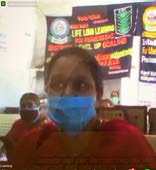 Corporate literacy for farmers in India
Corporate literacy for farmers in India
A new MOOC on corporate literacy was jointly offered by COL and India’s National Bank for Agriculture and Rural Development (NABARD) via basic mobile phones to more than 1,500 farmers. COL provided expertise in open and distance learning, while the technology platform was offered by the Indian Institute of Technology Kanpur using an open-source software called mooKIT. Learning materials developed by NABARD were made available as short audio clips. COL plans to gradually extend the mobiMOOC to interested Commonwealth countries in sub-Saharan Africa and the Caribbean.
COL and UNESCO Institute for Lifelong Learning launch new course
In recognition of the important role teachers, carers and other stakeholders play in ensuring the success of distance learning during events like COVID-19, the UNESCO Institute for Lifelong Learning has partnered with COL to offer a course on how to plan family and intergenerational literacy learning programmes in various country contexts. It is designed for a wide range of education professionals from civil society organisations, non-governmental providers and government institutions for literacy and early childhood education, as well as teacher education institutions. The new online course strengthens the capacity of various institutions to nurture collaboration between the teacher, the parent/carer and other non-classroom actors in supporting the learning process, especially during this pandemic.
“Teaching in a Digital Age” available as a course
A new course released by COL aims to help improve the quality of teaching in campus-based, blended or fully online learning environments. It is based on a 12-part video series produced by COL earlier this year in response to the COVID-19 crisis. The course can be accessed here.
Training staff of international organisations
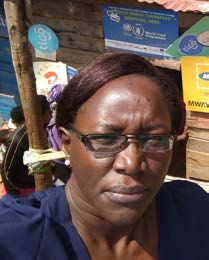
For the past seven years, COL’s eLearning for International Organisations (eLIO) has been helping the United Nations High Commissioner for Refugees (UNHCR) build staff capacity in programme management. This year, the certification programme continued despite COVID-19 disruptions, with individual e-coaching support, learner tracking and tutor management. Traditionally delivered in a blended mode, this year’s programme was conducted via virtual workshops over several weeks, making use of new online tools.
The practical assignments gave Goretti Akareut (UNHCR, Uganda) an opportunity to understand the operation’s specific experiences better. She said: ” Working virtually with colleagues from different operations and time zones called for co-ordination, creativity and flexibility. Fortunately, the technology has made virtual interactions possible. In fact, in the end, I felt like I had met my teammates in person. ”
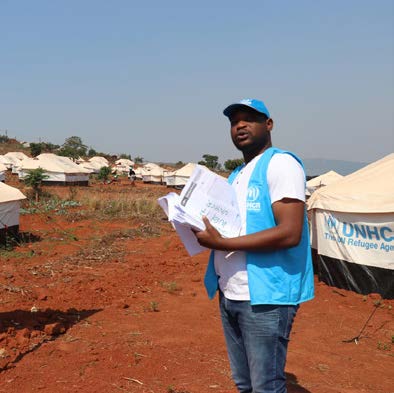
Another learner, Pride Chifodya (UNHCR, Zimbabwe), noted: “The impact of the programme can be measured in the current way I perform my duties contributing to the lives of refugees and asylum seekers. There has been a great change in my personal attitude and in my application of critical components learned during my studies. I now look forward to more challenging opportunities.”
Cybersecurity for teachers
Over 1,500 participants from 63 countries, including 44 Commonwealth nations, joined COL’s new MOOC Cybersecurity Training for Teachers. The course was developed in response to the recent shift by education institutions towards distance education and digital learning technologies and underscored the importance of online safety for teachers and learners. The course targeted primary and secondary school teachers as well as other education practitioners currently implementing online or blended learning in their institutions. This MOOC is the first of a two-part series on cybersecurity and is a prerequisite for the Advanced Cybersecurity Training for Teachers course, to be offered at a later date.
Designing and developing online assessments
A new COL course on Designing and Developing Online Assessments, offered via the Virtual University for Small States of the Commonwealth Moodle platform, brought together learners from 14 Commonwealth countries. They were familiarised with the unique factors to consider when preparing assessment tasks for the online environment. The course provided learners with an opportunity to design and develop assessment tasks suitable for courses they currently teach or expect to teach online.
JL4D seeks contributions
Contributions are invited for the Journal of Learning for Development, which focuses on innovations in learning – in particular, but not exclusively, open and distance learning and its role in development. Contributions can take the form of research articles, case studies, commentaries and reports from the field. Please visit the journal’s website (www.jl4d.org) for more details and to submit work.
AFRICA
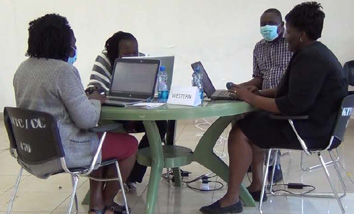 Distance and flexible learning for TVET, Kenya
Distance and flexible learning for TVET, Kenya
COL is assisting Technical and Vocational Education and Training (TVET) Directorate of Kenya’s Ministry of Education to respond to challenges caused by COVID-19. Following the closure of TVET institutions earlier this year, the ministry developed a comprehensive plan to scale distance and flexible learning in TVET. A first step was to establish COL’s long- term partner, the Kenya Technical Trainers College (KTTC), as a national centre for open, distance and eLearning. COL assisted KTTC with setting up a learning management system and provided open educational resources through which KTTC can build TVET teachers’ capability in online learning.
CEMCA trains Maldives teachers
The Commonwealth Educational Media Centre for Asia, in partnership with the National Institute of Education, Maldives, organised a virtual three-day teacher capacity-building workshop for 560 participants, including teacher educators. Dr Abdulla Rasheed Ahmed, Minister of State for Education, Maldives inaugurated the workshop, and the programme included a presentation on Instructional Design for Online Learning, as well as sessions on the use of Internet-based tools for content development and collaboration and on using a learning management system.
Support for teacher development in Sierra Leone
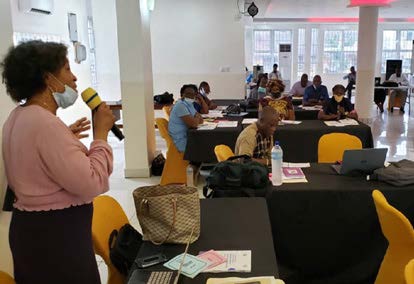 There has been an increased focus on continuous professional development (CPD) of teachers due to COVID-19 to ensure they have the skills and competencies to respond to educational disruptions. In partnership with the Sierra Leone Teaching Service Commission, COL organised a workshop to formulate a national CPD framework and guidelines.
There has been an increased focus on continuous professional development (CPD) of teachers due to COVID-19 to ensure they have the skills and competencies to respond to educational disruptions. In partnership with the Sierra Leone Teaching Service Commission, COL organised a workshop to formulate a national CPD framework and guidelines.
The training brought together 50 educators and representatives from local and international organisations, including the World Bank, officials from the Ministry of Basic and Senior Secondary Education and the Ministry of Technical and Higher Education, as well as representatives from teacher training institutions and non-governmental organisations. As a result of this workshop, guidelines for in-service training providers and an activity plan for national CPD delivery in Sierra Leone were developed.
Open schooling for eSwatini
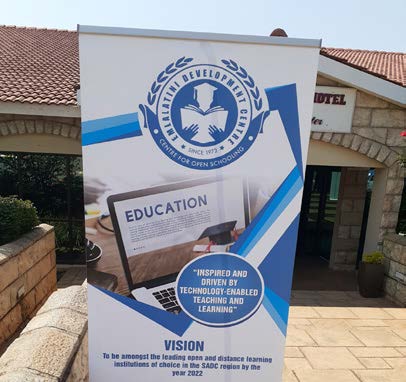 COL is helping the Emlalatini Development Centre (EDC) in eSwatini achieve its vision to be amongst the leading open and distance learning institutions of choice in the Southern African Development Community by the year 2022.
COL is helping the Emlalatini Development Centre (EDC) in eSwatini achieve its vision to be amongst the leading open and distance learning institutions of choice in the Southern African Development Community by the year 2022.
With COL’s support, key features of an online and blended learning model based on the use of open educational resources (OER) have been identified. This will help EDC effectively meet the needs of its stakeholders. COL has also facilitated a review of suitable digital platforms and subsequent online training for EDC staff on the use of OER. It is now providing support to EDC content developers to ensure that curriculum-based content is shared as OER.
Employability strategy for Copperbelt University
COL supported the development of a policy and strategy on employability at universities in Africa, most recently at Copperbelt University (CBU) in Zambia. As part of a comprehensive project, the university management and academic staff reviewed ways to adopt COL’s Toolkit for Key Employability Indicators for National Qualification Agencies and worked on an institutional employability scorecard, as well as validation of the policy and strategy. CBU identified ways to embed the employability attributes in the BA programme at its School of Business Studies.
Promoting inclusion in Mauritius
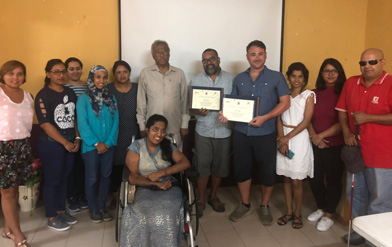 As part of its work to promote disability inclusion and equality, COL is developing short online courses for service workers, teachers and volunteers who work with persons with disabilities (PWD), with the Global Rainbow Foundation, Mauritius. The first course, Introduction to Disability Needs Assessments and Assistive Technologies, brought together 42 teachers and disability practitioners from institutions across Mauritius, including three PWD. At the end of the 12-week course, participants were able to select and use appropriate and accessible technologies to help PWD overcome specific barriers in education and workplace settings.
As part of its work to promote disability inclusion and equality, COL is developing short online courses for service workers, teachers and volunteers who work with persons with disabilities (PWD), with the Global Rainbow Foundation, Mauritius. The first course, Introduction to Disability Needs Assessments and Assistive Technologies, brought together 42 teachers and disability practitioners from institutions across Mauritius, including three PWD. At the end of the 12-week course, participants were able to select and use appropriate and accessible technologies to help PWD overcome specific barriers in education and workplace settings.
Skills training for vulnerable women, Malawi
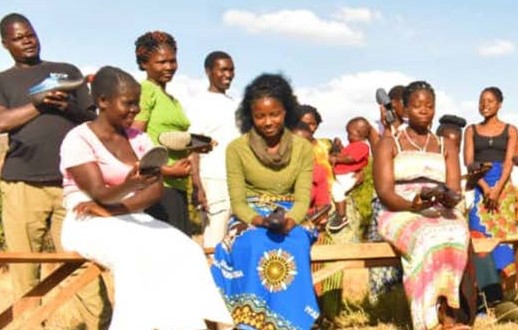 With COL’s support, 225 vulnerable women and girls from the Mchinji District of Malawi have acquired valuable skills for sustainable livelihoods. They have benefited from training in shoemaking as part of the Lifelong Learning for Mothers (L3M) project administered by the Concerned Youth Organisation. L3M has targeted mothers and out-of-school girls to equip them with vocational as well as business management skills, and raise their awareness about gender equality, thereby addressing local cultural norms. Through project activities, local community women have been connected to micro-finance institutions and markets for their products.
With COL’s support, 225 vulnerable women and girls from the Mchinji District of Malawi have acquired valuable skills for sustainable livelihoods. They have benefited from training in shoemaking as part of the Lifelong Learning for Mothers (L3M) project administered by the Concerned Youth Organisation. L3M has targeted mothers and out-of-school girls to equip them with vocational as well as business management skills, and raise their awareness about gender equality, thereby addressing local cultural norms. Through project activities, local community women have been connected to micro-finance institutions and markets for their products.
Nurses and midwives in Seychelles trained for better care
COL has partnered with the Seychelles Nurses and Midwives Council to provide online, context-specific continuing professional development for nurses and midwives via a platform of the World Continuing Education Alliance. The eLearning modules aim to strengthen nursing and midwifery competencies and promote the delivery of better health care to patients in Seychelles. Close to 500 nurses and midwives have already completed an average of eight courses each, gaining extra skills and higher levels of competencies. This will enable them to improve the quality of health services delivered to patients in Seychelles.
Supporting Nigerian universities to go dual-mode
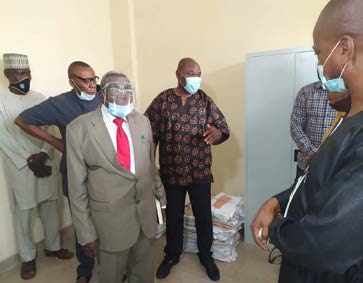 COL and the Regional Training and Research Institute for Distance and Open Learning (RETRIDOL) continue to support Nigerian university partners that are seeking accreditation by the National Universities Commission to operate as dual-mode universities. A series of visits to the institutions involved in the project aimed to respond to their needs in regard to accreditation requirements. The RETRIDOL team toured the University of Ilorin, as well as Afe Babalola University and the University of Port Harcourt. As they move toward accreditation, these institutions expect to address the needs of the hundreds of thousands of learners denied enrolment annually as a result of space constraints in conventional institutions across the country.
COL and the Regional Training and Research Institute for Distance and Open Learning (RETRIDOL) continue to support Nigerian university partners that are seeking accreditation by the National Universities Commission to operate as dual-mode universities. A series of visits to the institutions involved in the project aimed to respond to their needs in regard to accreditation requirements. The RETRIDOL team toured the University of Ilorin, as well as Afe Babalola University and the University of Port Harcourt. As they move toward accreditation, these institutions expect to address the needs of the hundreds of thousands of learners denied enrolment annually as a result of space constraints in conventional institutions across the country.
Building SADC capacity to use technology in open schooling
In partnership with its regional centre in Botswana, the Southern African Development Community Centre for Distance Education (SADC-CDE), COL delivered a webinar series entitled Learning Design for Online Course Provision for Open Schooling. Forty participants from the Namibian College of Open Learning, Botswana Open University, the Lesotho Distance Teaching Centre and the Tanzanian Institute of Adult Education benefited from the training, which aimed to augment the capacity of these institutions to offer courses using technology-enabled learning. The series covered blended learning pedagogy, developing OER, and designing interaction and engagement. The acquired knowledge will help these institutions reach thousands of learners in their respective countries through open schooling initiatives. Participants developed action plans, with implementation to be supported by COL and SADC-CDE.
ASIA
Boosting employability for women in Pakistan
Earlier this year, the Fatima Jinnah Women University (FJWU) joined the COL-led International Partnership of Distance and Online Learning for COVID-19, gaining access to shared learning resources and tools, free training and capacity building. In the framework of this collaboration, close to 600 FJWU students and graduates have benefited from free online courses under the COL-Coursera Workforce Recovery Initiative.
This is what some of them said:
| Areeba Toor: “An invaluable experience with excellent content.” | |
|
|
Gulnoor Butt: “The best eLearning platform, beneficial for me to learn.” |
| Javeriya Yasin: “The skills I learned have encouraged me to grow professionally.” | |
| Hina Fatima: “All of the courses have been taught in a way that is easy to understand.” |
Professional development for school principals, Sri Lanka
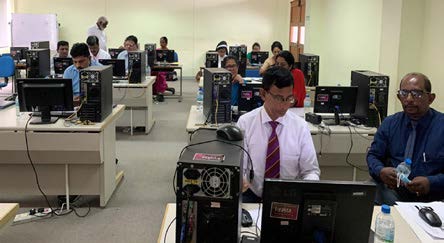 In collaboration with the Sri Lanka Ministry of Education, COL is supporting the country’s School-Based Professional Teacher Development programme (SBTD). A workshop for principals representing 15 national and provincial pilot schools provided an introduction to the programme content and learning activities, as well as the evolving Teacher Competency Framework. The principals will be leading the SBTD programme in their schools, where a community of practice will involve teacher learning on subject knowledge, pedagogic practices, assessment and inclusion, among other components.
In collaboration with the Sri Lanka Ministry of Education, COL is supporting the country’s School-Based Professional Teacher Development programme (SBTD). A workshop for principals representing 15 national and provincial pilot schools provided an introduction to the programme content and learning activities, as well as the evolving Teacher Competency Framework. The principals will be leading the SBTD programme in their schools, where a community of practice will involve teacher learning on subject knowledge, pedagogic practices, assessment and inclusion, among other components.
Women with disabilities gain agency in Sri Lanka
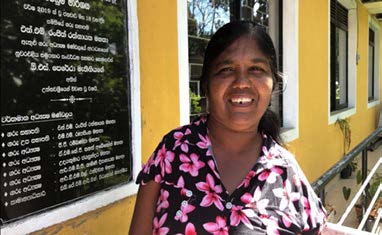 COL’s GIRLS Inspire provides safe learning spaces to women and girls with disabilities in hard-to-reach places while improving their skills and self-esteem. In Sri Lanka, COL’s partner the Women’s Development Centre has offered women like Susila (in the picture) shelter, psychosocial support and an opportunity to become a contributing member of society. Susila, who was born with a disability and had been unable to access formal education, has started her own sales outlet with assistance from GIRLS Inspire. It has become a profitable business, and Susila finds the greatest happiness in being able to support her family.
COL’s GIRLS Inspire provides safe learning spaces to women and girls with disabilities in hard-to-reach places while improving their skills and self-esteem. In Sri Lanka, COL’s partner the Women’s Development Centre has offered women like Susila (in the picture) shelter, psychosocial support and an opportunity to become a contributing member of society. Susila, who was born with a disability and had been unable to access formal education, has started her own sales outlet with assistance from GIRLS Inspire. It has become a profitable business, and Susila finds the greatest happiness in being able to support her family.
COL joins forces with EdBank to train 100,000 teachers in India
COL has partnered with ScooNews | EdBank to help 100,000 teachers in India rethink their classroom practices and prepare for educational disruptions similar to those caused by COVID-19. A series of masterclasses on topics ranging from technology and blended learning to curriculum and assessment, leadership and well-being are on offer. Education stakeholders include teachers, subject-matter experts, support staff, heads of departments and school leaders. As Knowledge Partner, COL will offer advisory and quality assurance guidance, as well as access to additional teacher training resources, platforms and expertise.
Capacity building for Virtual University of Pakistan
 CEMCA has assisted the Virtual University of Pakistan with building staff capacity in the use of open educational resources (OER). A virtual workshop on Adoption of Open Educational Resources focused on the concepts of OER, copyright and open licensing, as well as finding, evaluating and adapting OER. Special sessions featured CEMCA’s work in promoting the use of OER across the Commonwealth Asian countries and the use of open courseware in Pakistan. The workshop also included hands-on activities. Participants noted the importance of OER for distance education, especially in overcoming the dearth of educational resources.
CEMCA has assisted the Virtual University of Pakistan with building staff capacity in the use of open educational resources (OER). A virtual workshop on Adoption of Open Educational Resources focused on the concepts of OER, copyright and open licensing, as well as finding, evaluating and adapting OER. Special sessions featured CEMCA’s work in promoting the use of OER across the Commonwealth Asian countries and the use of open courseware in Pakistan. The workshop also included hands-on activities. Participants noted the importance of OER for distance education, especially in overcoming the dearth of educational resources.
Biorisk management MOOC
With support from COL, the Universiti Malaysia Sabah (UMS) organised a MOOC on Introduction to Biorisk Management. The five-week course covered risk assessment, risk mitigation and performance assessment of biorisk management agencies. The course, which brought together 950 learners, was offered as a pilot project to build UMS’s capacity to offer MOOCs using mooKIT, an open-source software.
CARIBBEAN & AMERICAS
Over 8,000 teachers trained in Trinidad and Tobago
At the request of the Ministry of Education in Trinidad and Tobago, COL offered the course OER for Online Learning to over 8,000 teachers to develop their capacity in online and blended learning. Designed to support teachers during school closures caused by COVID-19, the course offers guidelines on scaffolding the independent use of existing prescribed resources and supplementing them with open educational resources. It also focuses on ways to use technology to support communication and learning as well as assessment and feedback. The course enables teachers to provide effective pedagogical support to learners in preparation for their return to school and helps build a community where they can share new ideas as they reconnect with colleagues. The ministry has opted to use the course as the springboard for internal in-service training of teachers in technology-enabled learning.
Impact of the pandemic on international higher education
